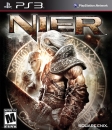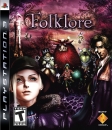^I don't understand what Natal - as you prospected - would add to RTS gaming over what can be accomplished today with mice, keyboards and microphones. Hand motion sensing as a substitute for mouse could work on consoles, though I'd like to test it, but vocal and gesture commands can only clumsily replace a keyboard.
All of this is not important anyway, because that's not the gist of Natal. Voice control is just windows dressing and is already available (and used in some RTS games).
The whole new thing is full body motion control and the "you're the controller" philosophy, and my question about needs was about the tool not the games.
As in: did any RTS developer ever say "we need a tool to control this kind of games, I wish somebody would make a skeletal motion control system"? Retrofitting it to game genres that did not seem to need it in the first place is an interesting thought exercise, though how good the results are is to be tested, but that's not where Natal came from.
Take other "exotic" controllers (cloches and whole instrumental consoles for flight simulators, 3d twist orbs for mechanical CAD software) and it is clear why they were born. With Natal I'm not sure, because I still have not understood to what point they want to push it as a general/universal tool and to what point it will be a specialized tool.




















